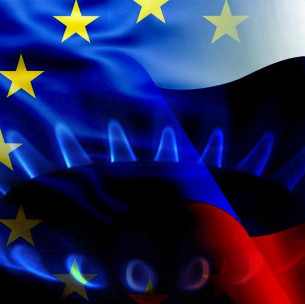
August 16 saw the Russian Defense Ministry’s 10th Moscow Conference on International Security (MCIS-2022) take place within the framework of the Army 2022 forum. The conference was first held in May 2012 to become an annual event highlighting issues of global and regional stability, as well as security aspects in Asia, Africa, the Middle East, Europe, and Latin America.
This year’s conference was attended by over 700 guests, including defense ministers of 35 countries, general staff chiefs, military officials, members of the expert community from 70 countries, and spokespeople for a number of international organizations. This is clear proof that Russia has not been isolated globally, which the West so much likes to speculate about, and still garners attention of countries from across the world.
In his opening speech, Russian President Vladimir Putin greeted those present and said the collective West was "deliberately undermining the European security system and knocking together ever new military alliances." He specifically noted the NATO bloc moving eastwards and expanding its military infrastructure. According to Putin, "this is hypocritically attributed to the need to strengthen security in Europe, but in fact quite the opposite is taking place." The Russian leader also stressed the fact that his country’s proposals of December 2021 on mutual security measures have been ignored, again.
The head of state put an increased focus on the situation around Ukraine. The West needs conflicts to retain its global hegemony, he said, and therefore has "destined the Ukrainian people to being used as cannon fodder. They have implemented the anti-Russia project and connived at the dissemination of the neo-Nazi ideology. They looked the other way when residents of Donbass were killed in their thousands and continued to pour weapons, including heavy weapons, for use by the Kiev regime, something that they persist in doing now." According to Putin, this specifically forced Russia to launch its special military operation in Ukraine, which does not run counter to the UN Charter, by the way. "It has been clearly spelled out that the aims of this operation are to ensure the security of Russia and its citizens and protect the residents of Donbass from genocide," the Russian leader said.
In his conference speech, President Putin also claimed the United States and its vassals grossly interfere in the internal affairs of sovereign states by staging provocations, organizing coups, inciting civil wars. "By threats, blackmail, and pressure, they are trying to force independent states to submit to their will and follow rules that are alien to them."
Vladimir Putin also focused on the Asia-Pacific region (APR). Seeking to extend its bloc-based system there, like it did with NATO in Europe, the collective West is forming aggressive military-political unions like AUKUS and others. Besides, Putin said the American escapade towards Taiwan was not just a trip by House Speaker Nancy Pelosi, but deliberate strategy.
The president stressed that "it is only possible to reduce tensions in the world, overcome military-political threats and risks, improve trust between countries and ensure their sustainable development through a radical strengthening of the contemporary system of a multipolar world." He said as follows: "The era of the unipolar world is becoming a thing of the past. No matter how strongly the beneficiaries of the current globalist model cling to the familiar state of affairs, it is doomed. The historic geopolitical changes are going in a totally different direction."
The conference also featured Russian Defense Minister Sergei Shoigu’s report on the key problems of international security. He virtually outlined Russia’s official stance on all the major foreign policy issues, primarily the formation of a multipolar world and the special military operation in Ukraine.
Speaking about the evanescent unipolarity, Shoigu said the countries face a rather straightforward choice: either to obey and become so-called "democratic partners", or to show persistence and follow their own path. “A multipolar world is the reality of today. The transition from dominance by a single global leader to several centers of gravity is not an easy one. The main difference between them is that some respect the interests of sovereign states, take into account the cultural and historical characteristics of countries and their peoples, while others neglect them," the head of the Russian defense ministry said.
Touching upon the water-cooler topic of Russia's alleged readiness to use nuclear weapons, Shoigu reassured his fellow citizens and warned the Westerners that a possible attack on Russia will inevitably entail a response. “Speculation is spreading in the media about the alleged use of Russian tactical nuclear weapons in the special military operation or the readiness to use chemical weapons. All the information gibberish is a lie," he said.
In his speech, Sergei Shoigu could not overlook the problem of global terrorism, having particularly noted Russia's concern about Syria, where it is still possible to contain terrorists despite the danger of the "Kurdish factor", Shoigu said. He also dwelled on Afghanistan, with its disappointing "legacy" left after the withdrawal of US troops.
In conclusion, the defense minister thanked all the countries who had sent their representatives to Moscow and thus demonstrated the failure of Western attempts to isolate Russia.









